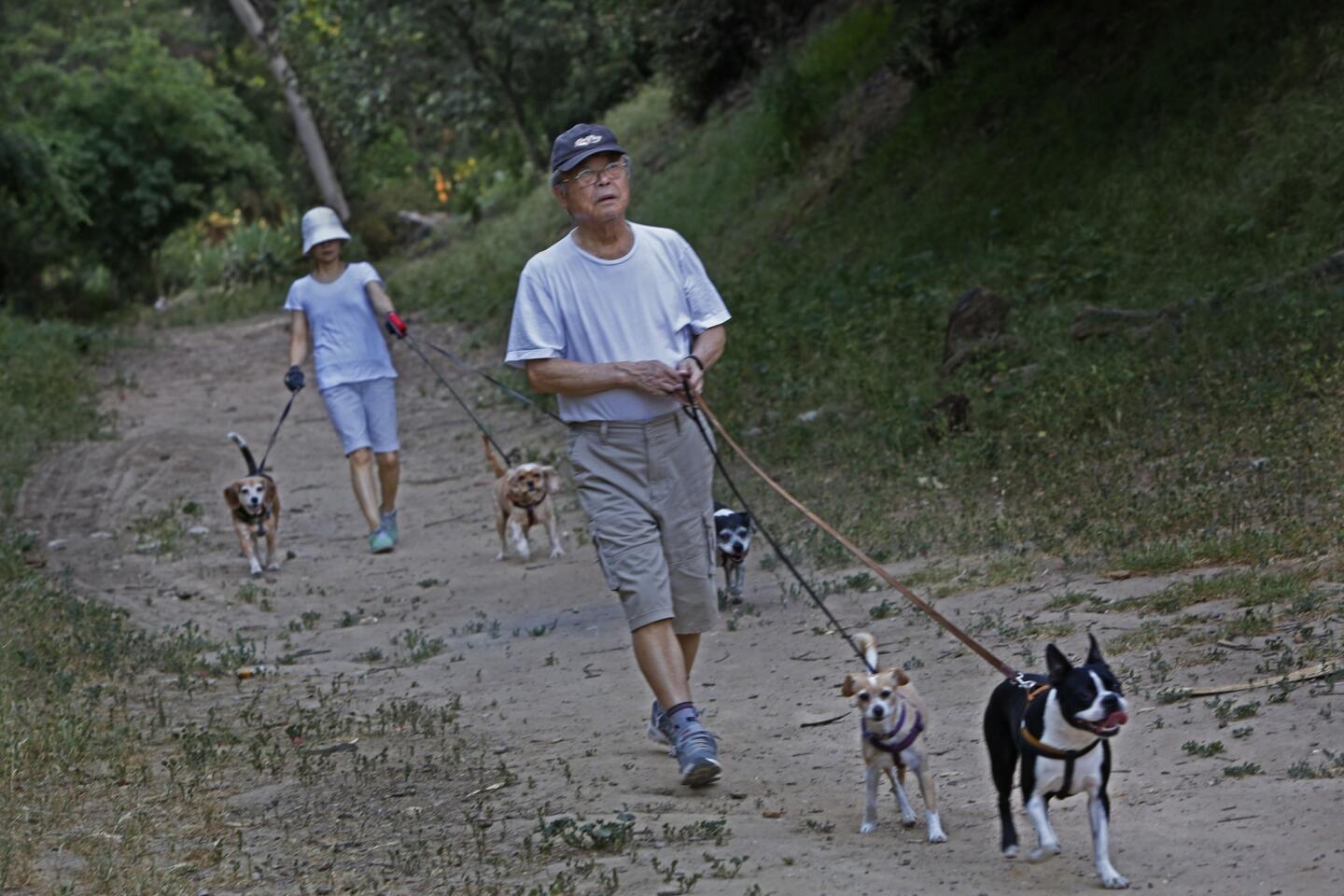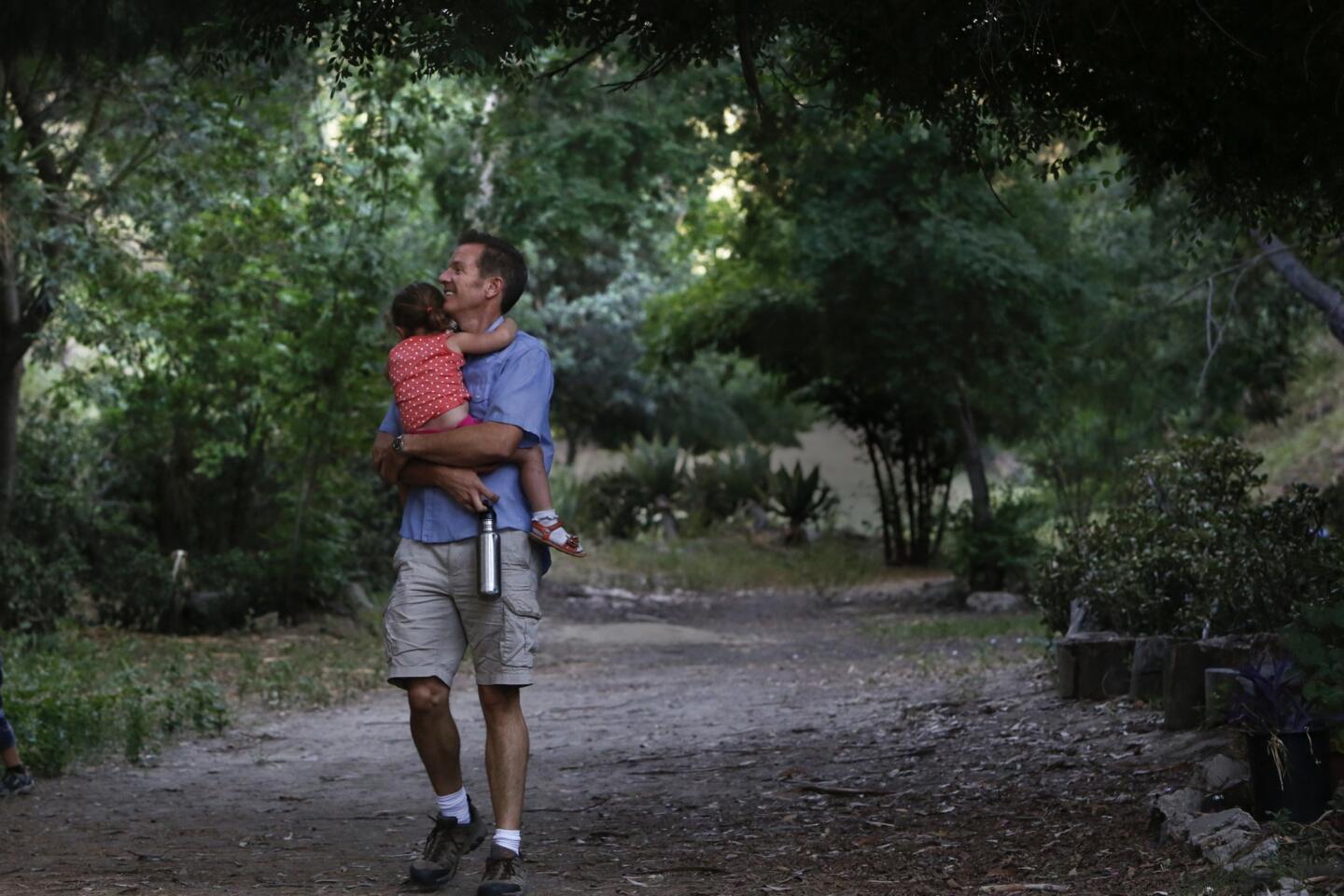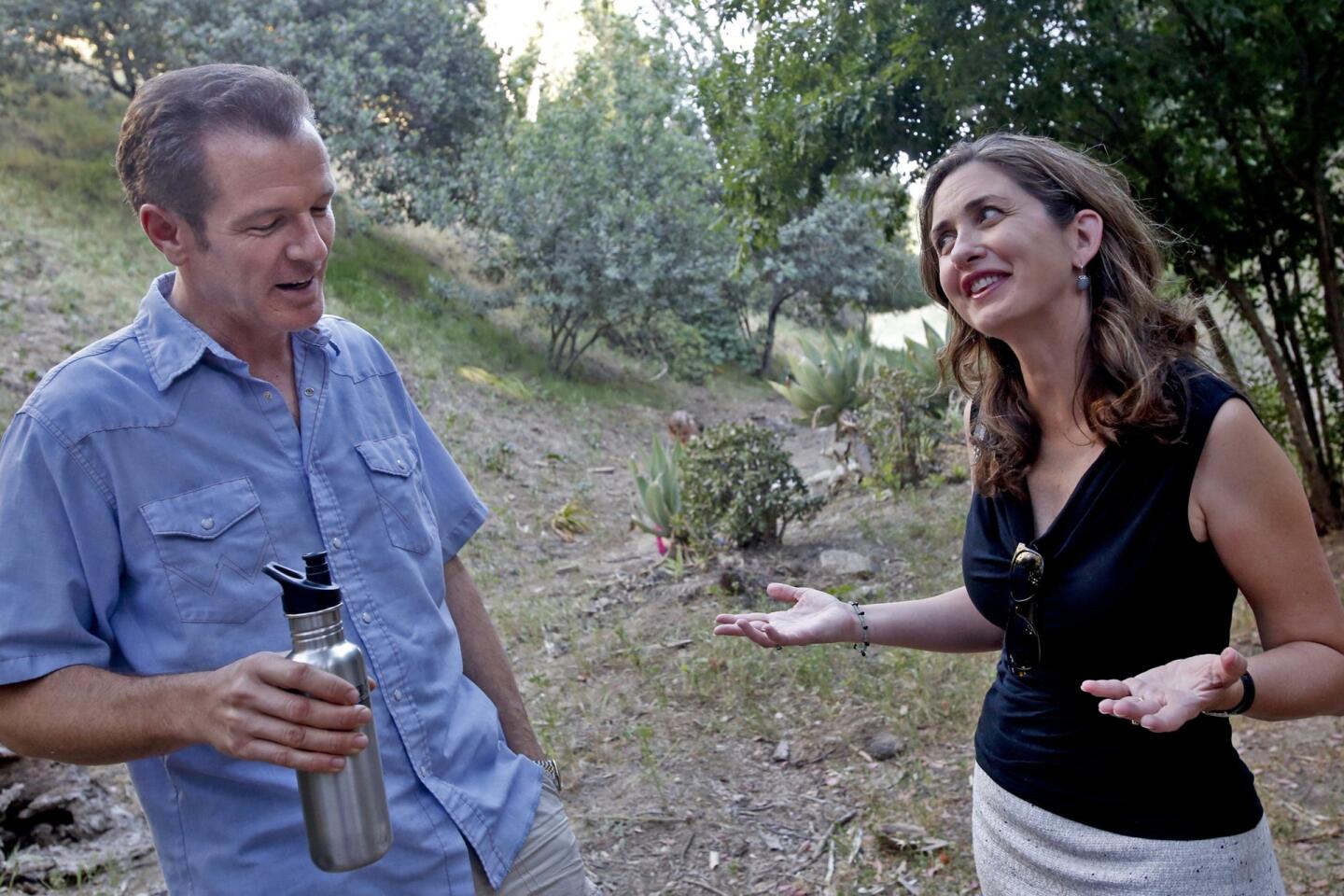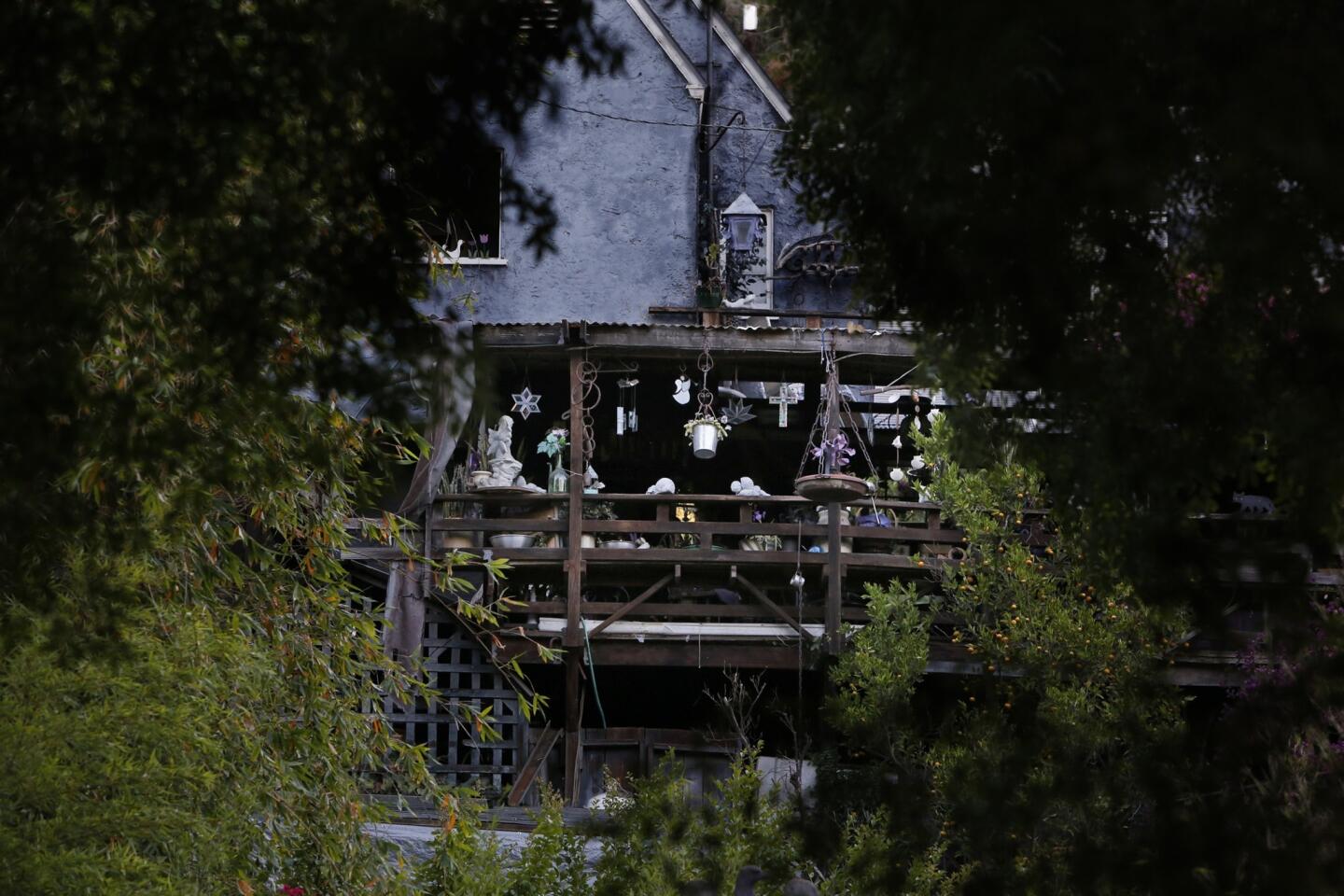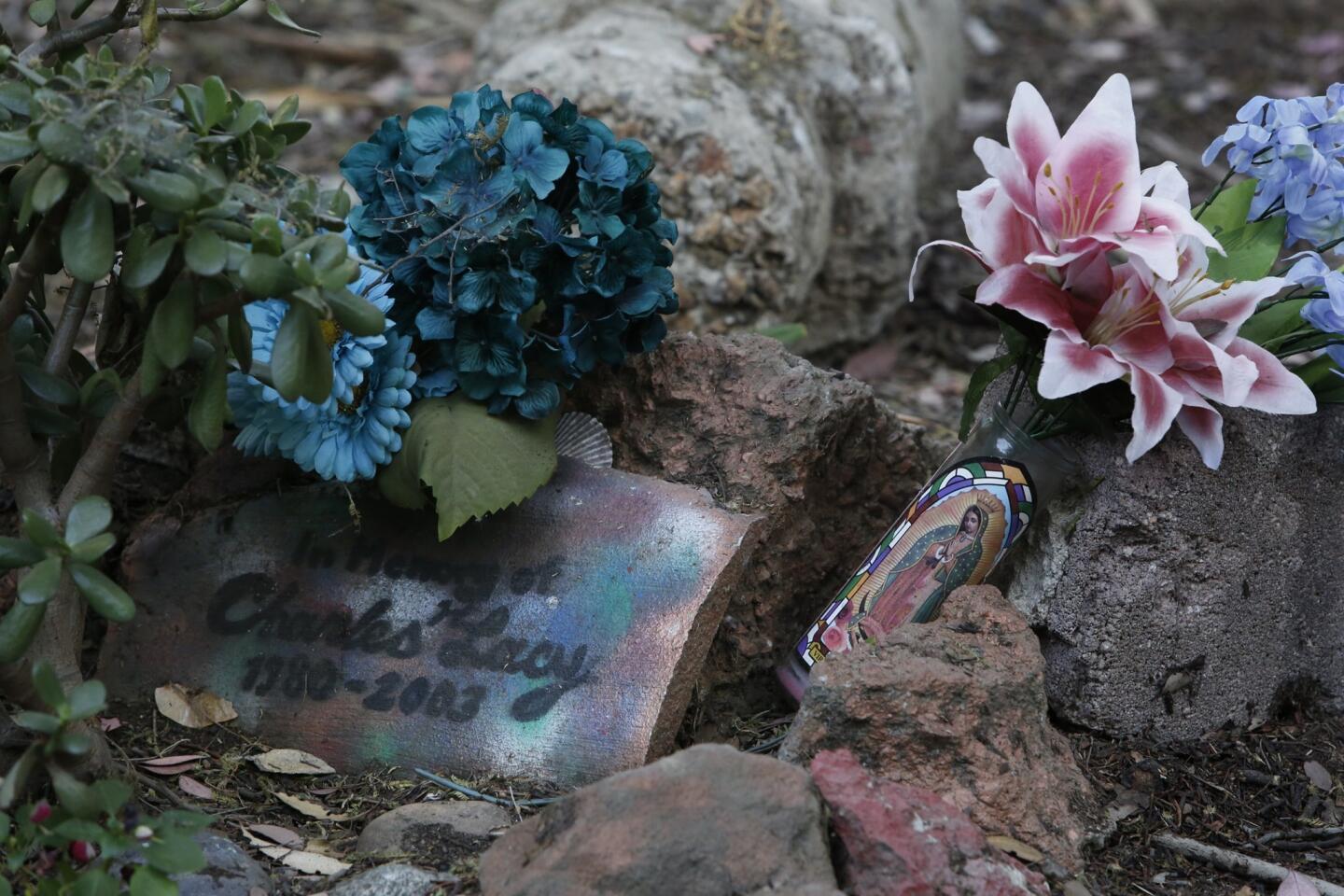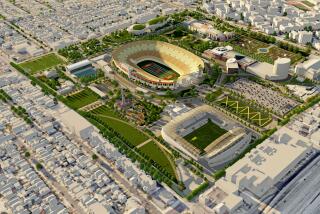Corralitas Red Car land a step closer to becoming a park
Deckard Strait knelt in the dirt near a walnut tree and carved a hole in the ground with his small hands. His younger sister sat cross-legged nearby and watched as he dug for worms.
Their father told them it was time to head home for dinner, but acquiesced to Deckard’s plea for five more minutes along the trail of overgrown trees near their Silver Lake home. Before long, a jogger whizzed by and then came a couple walking their Chihuahua.
Neighbors treat the Corralitas Red Car property like a park — and now it’s one step closer to becoming one.
The landowner signed paperwork earlier this month indicating her willingness to sell the roughly 10-acre plot to the Trust for Public Land. If successful, the sale would end decades of tension between residents and developers over the skinny, forested parcel named for its southern boundary, Corralitas Drive, and the Pacific Electric Red Car line that once ran through it. But before the sale can be completed, several major steps need to occur. Once the property value assessment is completed, the nonprofit group must piece together enough private and public funds to entice the buyer. The Trust for Public Land said it hopes to have the land protected by 2015.
In 1980, a group of Silver Lake residents rallied against a plan to build 40 condominiums on the land. That year, the developer characterized their complaints to The Times as the byproduct of neighborhood NIMBYism: “Everybody knows that Los Angeles desperately needs housing, but they don’t want it built around them.”
Two decades later, a different developer announced a more ambitious plan: he wanted to build 71 homes on the property. Mayor Eric Garcetti — then the councilman representing the area — opposed the plan, telling The Times in 2002 that he thought developing the property would be “a step backward.” In the summer of 2012, after a posting for the land went up on the real estate website LoopNet and mentioned the potential for 178 residential units, loud voices from the neighborhood, again, expressed concerns of becoming a concrete jungle.
Diane Edwardson — the loudest advocate against the development — can’t help but laugh as she lists the slew of projects she has seen fall through since moving into a home on Corralitas Drive 24 years ago. There are so many, she said, that she created an entire section called “Legacy of Failed Development” on her blog about the property. She credits the ruckus raised by neighbors for helping to stave off past plans.
“We’ve gotten really good at fighting development,” she said. “We’ve done this so many times and have so much PR material. We’re like, ‘What do you need? Pictures of kids and dogs? Wildlife on the property?’ ”
The Trust for Public Land found out about the Red Car property several years ago from Edwardson, who asked if it might be interested. Before long, the nonprofit contacted the property owner, Liza Torkan — who bought the parcel for $300,000 in 2001 — and explained what it hoped to see happen with the land.
“It’s been nearly two years of conversation to get where we are now — to get to an agreement,” said Becky Nielsen, project manager for the Trust for Public Land.
Although the option agreement Torkan signed earlier this month doesn’t guarantee that the sale will pan out, it gives the nonprofit the exclusive right to buy the land through July 12.
“It’s a big deal,” Nielsen said. “It gives us the sole right for a certain time to try to get our ducks lined up.”
Howard Fields, who manages the land for Torkan, said the price tag will ultimately influence whether she sells the land, which is being appraised.
“We need to see what the fair market value is,” he said. “And then see what we do.”
Even though the plot winds and narrows, and backyards and fence lines have encroached farther and farther onto the land over the years, Fields said he thinks it’s quite developable — especially on either end.
“But that’s not the direction we’re going right now,” Fields said. “It feels like it’s right to turn it back to a park.”
Back on the trail, between the patch of prickly pear cactuses that crawls up the steep hillside and the historical bridge pilings that a renegade artist has painted different pastel colors, the electrical innards of an old television splay across the ground. Nearby, someone has set a tattered copy of Michael Connelly’s book “The Narrows” on an overturned dresser. A man walking by jokingly calls it the Red Car lending library.
A few feet away, Jodi Delaney, Los Angeles program director for the Trust for Public Land, pointed at a row of potted plants that jutted up against the path.
“That’s someone’s extended backyard,” she said, laughing.
If the plan goes through, she said, they will work on a case-by-case basis with neighbors who have encroached onto the land.
For Edwardson, excitement over the recently signed agreement is tempered by caution. She can’t help but think back to the early 2000s, when she worked with the Santa Monica Mountains Conservancy, which nearly bought the land.
“We’re used to coming close,” she said. “I try not to jump the gun … but this is a very hopeful sign that there’s light at the end of the tunnel for the Red Car.”
More to Read
Sign up for Essential California
The most important California stories and recommendations in your inbox every morning.
You may occasionally receive promotional content from the Los Angeles Times.
